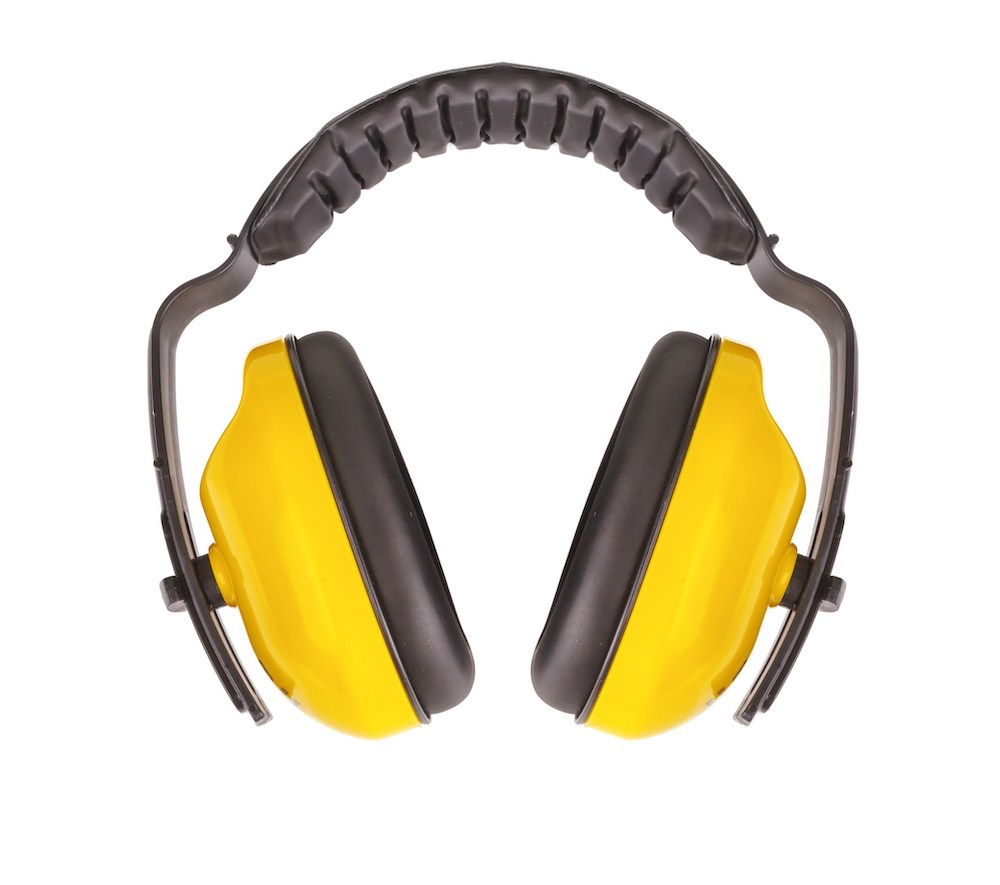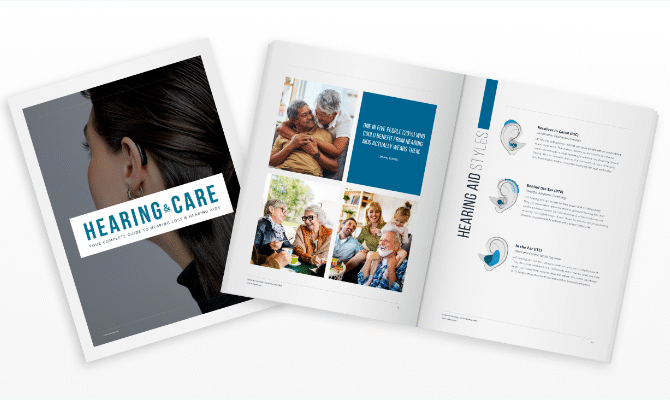The Impact of 5G on Hearing Aid Technology
As 5G networks continue to roll out across the country, you’ve
Check Out Our Latest Hearing Healthcare Videos on Our YouTube Channel! Click Here→

By: admin | October 30, 2024
Have you ever started a new medication and found yourself scanning that long list of potential side effects? Your eyes might have skipped right over “may affect hearing” – after all, how often does that really happen? But for some people, that seemingly unlikely side effect becomes a very real concern. Maybe you’ve noticed a slight ringing in your ears lately or sounds seem a bit muffled. Could it be related to that new prescription you started last month?
Whether you’re managing a chronic condition, fighting off an infection or dealing with pain, medications play a crucial role in our health. But like many things in life, they often come with trade-offs. Understanding which medicines might impact your hearing doesn’t mean you have to avoid them altogether. Instead, it’s about being informed, proactive and working closely with your healthcare providers to make the best decisions for your overall health – ears included.
Ototoxicity – it’s not a word that rolls off the tongue, but it’s one that’s important to know if you care about your hearing health. Simply put, it refers to medications that can potentially damage your inner ear. It’s not just about hearing loss either; some drugs can affect your balance too. The tricky part? These effects can sometimes sneak up on you, gradual enough that you might not notice until the changes are significant.
Ototoxicity pertains to the damage that certain medications and substances can cause to your ears. This damage can range from temporary hearing loss to more permanent issues, depending on the medication and dosage involved.
Having open conversations with your healthcare provider about any potential ototoxic effects of medications you’re taking is essential. Armed with this knowledge, you can make informed decisions about your treatment options and protect your valuable sense of hearing.
Currently, nearly 200 known drugs and chemicals have ototoxic potential. This includes certain antibiotics, chemotherapy drugs and even some over-the-counter pain relievers. Surprisingly, a study published in The Journal of the American Medical Association found that regular use of aspirin, acetaminophen or nonsteroidal anti-inflammatory drugs (NSAIDs) can increase the risk of hearing loss in men.
Certain types of antibiotics known as aminoglycosides are also on the list. These are typically used to treat serious infections like meningitis and septicemia. However, their ototoxic effects can lead to hearing loss or balance problems. According to research by the American Speech-Language-Hearing Association, up to 20% of patients treated with these antibiotics experience some form of auditory damage.
Certain types of chemotherapy drugs like cisplatin are known for their ototoxic properties. In fact, an estimated 40-80% of patients receiving this drug experience some level of hearing loss according to data from the National Institutes of Health. While these medications are essential for treating life-threatening conditions, understanding their potential impact on your hearing health is equally important.
To understand the specific impact of ototoxic drugs on your hearing abilities, it’s important to note that these medications can lead to both temporary and permanent hearing loss. The severity often depends on factors like the dosage, duration of use and individual susceptibility.
Ototoxic drugs can cause temporary hearing loss by affecting the hair cells in your inner ear responsible for transmitting sound signals to your brain. Once you stop taking these medications, your hearing might improve. However, it’s not always the case. Some ototoxic drugs can cause permanent damage to these hair cells, leading to irreversible hearing loss.
While ototoxic medications are necessary for treating serious conditions like infections or cancer, their potential impact on your auditory system cannot be overlooked. Awareness about their possible side effects allows you to have informed discussions with your healthcare provider about alternatives or strategies for minimizing their ototoxic effects.
Recognizing symptoms of hearing loss caused by ototoxicity can be tricky, as they often mimic other common auditory issues or gradually worsen over time. For example, you might notice that everyday sounds, like conversations or background noise, suddenly seem muffled or harder to distinguish. Difficulty understanding speech in environments with competing noise – like restaurants or social gatherings – can be one of the earliest signs, but this could easily be attributed to other factors like aging or stress, making it harder to pinpoint ototoxicity as the culprit.
In addition to hearing difficulties, some individuals may experience tinnitus, which is characterized by a persistent ringing, buzzing or hissing sound in one or both ears. This symptom can be particularly alarming, as it may disrupt sleep, concentration and overall quality of life. Ototoxicity can also cause imbalance or dizziness, as the inner ear is closely connected to our sense of balance. These symptoms may appear suddenly or develop gradually, but either way, they shouldn’t be ignored.
If you suspect that ototoxic medications are affecting your hearing, consulting with a hearing specialist is crucial. They can perform specific tests to assess whether your hearing loss is related to medication and work with your healthcare team to explore alternatives or adjustments to your treatment. Early intervention is key to preventing further damage, so if you notice any changes in your hearing after starting a new medication, don’t hesitate to seek professional advice. Your specialist can also recommend protective strategies, like regular monitoring and hearing aids, to help you maintain your hearing health.
When dealing with potential hearing loss from ototoxic medications, it’s crucial to approach the situation carefully and with professional guidance. Ototoxicity refers to damage to the inner ear caused by certain medications, and while some drugs can affect your hearing, you should never stop or change your prescribed medications without consulting your primary care physician (PCP). Altering your treatment plan without medical advice could lead to serious health risks, as many ototoxic medications are prescribed for critical conditions like infections, cancer or heart disease.
Your PCP is your first point of contact when it comes to reviewing your medications. If you suspect that a particular drug is affecting your hearing, your doctor can help evaluate the risks and benefits of your current prescription. They may suggest alternatives that are less likely to cause hearing damage, or adjust your dosage if it’s appropriate. Open communication with your physician ensures that your overall health remains a priority while addressing your concerns about ototoxicity.
Additionally, your PCP may work in tandem with a hearing specialist to monitor your hearing health. Together, they can help identify early signs of hearing damage and put measures in place to protect your ears, whether that involves modifying your treatment or incorporating regular hearing evaluations. By consulting your doctor first, you protect both your hearing and your overall well-being.
As we continue our discussion on hearing health, it’s important to distinguish between age-related and drug-induced hearing loss. Both can have a significant impact on your quality of life, but they have different causes and may require different treatment strategies.
Age-related hearing loss, also known as presbycusis, typically occurs gradually as you get older. It’s a natural part of the aging process and affects both ears equally. On the other hand, drug-induced hearing loss can occur at any age and might be temporary or permanent depending on the medication involved.
Understanding these differences when assessing your hearing health is essential. If you notice changes in your hearing abilities, don’t assume it’s just due to aging. It could be a side effect of medication you’re taking. Always consult with your healthcare provider or a hearing specialist for an accurate diagnosis and treatment plan. Awareness about these types of hearing loss can help you take proactive steps towards maintaining good auditory health.
Let’s consider another vital aspect of maintaining optimal hearing health – regular check-ups with a hearing specialist. It might seem like a simple step, but it carries significant importance in your overall auditory care plan.
Regular appointments with a hearing specialist not only help monitor your current hearing abilities but also allow for early detection of any potential issues. By keeping these visits as part of your routine, you’re taking an active role in preserving your valuable sense of hearing. Proactive care is always better than reactive treatment!
If you suspect you’re experiencing hearing loss, it’s important to know when to see a hearing specialist. Gradual changes in your hearing are often easy to overlook, but certain signs indicate that it’s time to seek professional help. If you frequently ask people to repeat themselves or find it challenging to follow conversations, especially in noisy environments, this could be an early sign of hearing loss. Difficulty hearing high-pitched sounds, like children’s voices or the beeping of appliances, may also signal that it’s time to consult a specialist.
Sudden hearing loss, on the other hand, should never be ignored. If you experience a rapid decline in your hearing, it’s considered a medical emergency and you should see a specialist immediately. Hearing loss that comes with symptoms like dizziness, ringing in the ears (tinnitus) or ear pain also warrants prompt attention. Whether the changes in your hearing are gradual or sudden, a hearing specialist can evaluate the underlying cause and provide the most effective treatment options to preserve your hearing health.
Protecting your hearing is essential for maintaining long-term auditory health, and there are several strategies you can adopt to preserve it. One of the most effective ways to protect your hearing is to limit exposure to loud noises. This can include reducing the volume on personal audio devices, using noise-canceling headphones or wearing earplugs in noisy environments like concerts or when using power tools. Regularly giving your ears a break from loud environments is also important in preventing long-term damage.
Another key strategy is to be mindful of the medications you take. Some medications, known as ototoxic drugs, can harm your hearing. If you’re prescribed medication, especially for long-term use, talk to your primary care physician about the potential risks. Never stop or adjust your medication without consulting your doctor, but if you’re concerned about ototoxicity, they may be able to explore alternative treatments that are safer for your hearing.
Additionally, regular hearing check-ups can help you detect any early signs of hearing loss before they worsen. If you work in a noisy environment, make sure your workplace provides proper hearing protection and ensure you’re using it correctly. Protecting your hearing now helps ensure clearer sounds and better hearing health in the future.
Understanding ototoxicity and its potential effects on your hearing health is essential. Armed with this knowledge, you can take proactive steps towards preserving your valuable sense of hearing. But understanding the risks isn’t enough; it also requires action.
At Hearing Well Matters, we are here to support you. Our dedicated team of hearing specialists at our Burlington, ON location is ready to provide comprehensive advice tailored to your unique needs and circumstances. Whether it’s a discussion about ototoxic medications or strategies for maintaining good hearing health, we’re here for you every step of the way.
Don’t let unanswered questions about ototoxicity or other aspects of your auditory health linger any longer. Reach out today on (647) 247-2704 and let us help guide you towards

As 5G networks continue to roll out across the country, you’ve
By: admin | October 20, 2025

Whether you’re mowing the lawn, attending a concert or working in a
By: admin | July 29, 2025

Hearing aids have evolved from basic amplification devices to
By: admin | June 20, 2025



